PANDAS—Questions and Answers [downloadable]
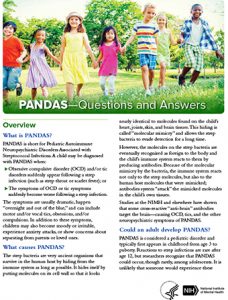
What is PANDAS?
PANDAS is short for Pediatric Autoimmune Neuropsychiatric Disorders Associated with Streptococcal Infections. A child may be diagnosed with PANDAS when:
- Obsessive-compulsive disorder (OCD), tic disorder, or both suddenly appear following a streptococcal (strep) infection, such as strep throat or scarlet fever.
- The symptoms of OCD or tic symptoms suddenly become worse following a strep infection.
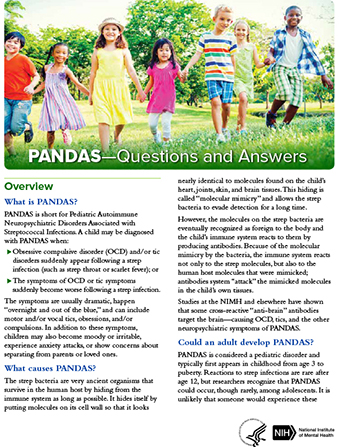
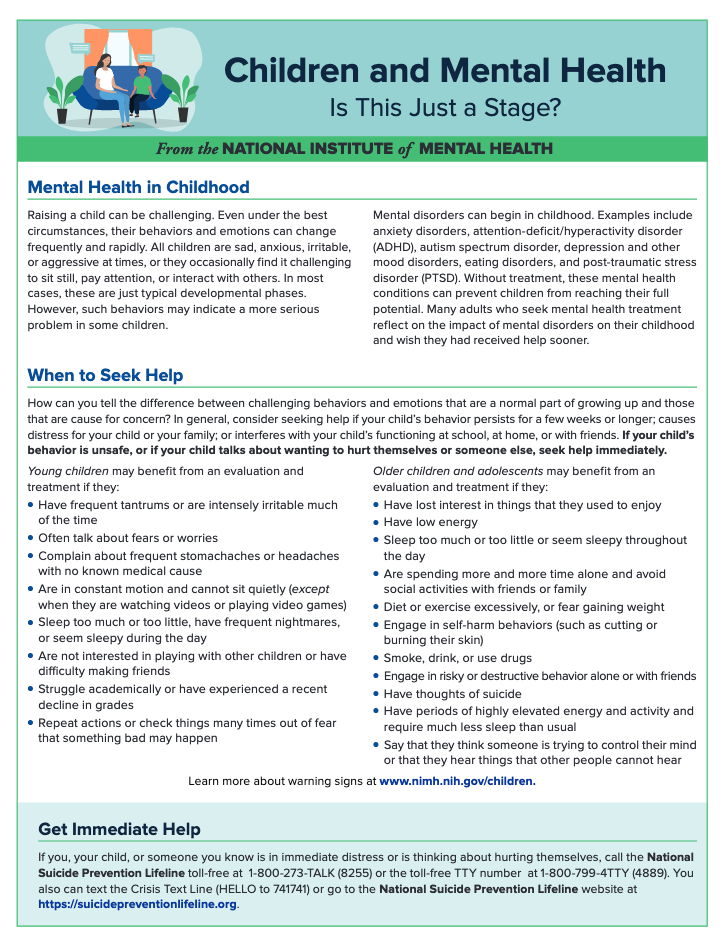
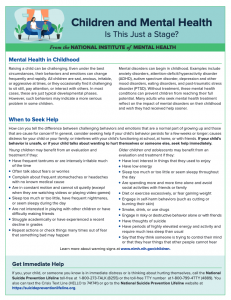 Even under the best of circumstances, it can be hard to tell the difference between challenging behaviors and emotions that are consistent with typical child development and those that are cause for concern.
Even under the best of circumstances, it can be hard to tell the difference between challenging behaviors and emotions that are consistent with typical child development and those that are cause for concern. 
 The Netflix show “13 Reasons Why” was associated with a 28.9% increase in suicide rates among U.S. youth ages 10-17 in the month (April 2017) following the show’s release, after accounting for ongoing trends in suicide rates, according to a study published in Journal of the American Academy of Child and Adolescent Psychiatry. The findings highlight the necessity of using best practices when portraying suicide in popular entertainment and in the media. The study was conducted by researchers at several universities, hospitals, and the
The Netflix show “13 Reasons Why” was associated with a 28.9% increase in suicide rates among U.S. youth ages 10-17 in the month (April 2017) following the show’s release, after accounting for ongoing trends in suicide rates, according to a study published in Journal of the American Academy of Child and Adolescent Psychiatry. The findings highlight the necessity of using best practices when portraying suicide in popular entertainment and in the media. The study was conducted by researchers at several universities, hospitals, and the 

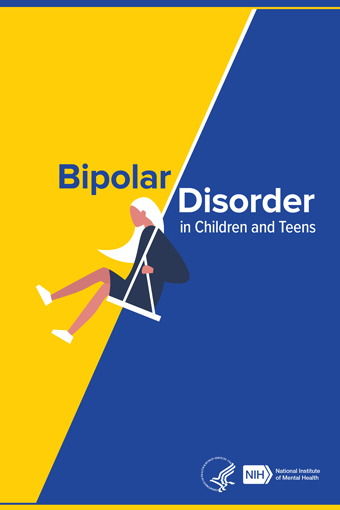
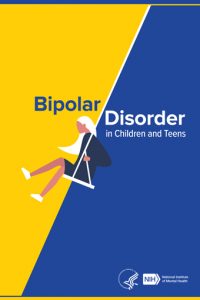 Does your child go through extreme changes in mood and behavior? Does your child get much more excited or much more irritable than other kids? Do you notice that your child goes through cycles of extreme highs and lows more often than other children? Do these mood changes affect how your child acts at school or at home?
Does your child go through extreme changes in mood and behavior? Does your child get much more excited or much more irritable than other kids? Do you notice that your child goes through cycles of extreme highs and lows more often than other children? Do these mood changes affect how your child acts at school or at home? 

